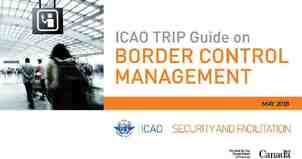Entrepreneurship Professor Josef Mittlemann Brown University
25 Slides119.50 KB

Entrepreneurship Professor Josef Mittlemann Brown University

A Brief History of Entrepreneurship Break activity into two camps: Leaders and Followers. Entrepreneurship camp – Leader Camp: Royalty - Military – Entrepreneur Camp: Merchants - Adventurers Mid 18th Century – A zero sum game- ones gain another’s loss This resulted in Negative connotations for the business person

Differences between the Capitalist vs. Merchant Capitalist: No risk to Life and limb Favored by Laws of usury Adventurer Actively trading and voyaging, resulted in Development of Skills Was forced to survive. Use of new tools and skills

The word “Entrepreneur” Definitions Dictionary in France (1723) “one undertaking a project, a manufacturer, a master builder” England (18th Century) An “adventurer, projector, or undertaker”

Richard Cantillon “L’Essai sur la nature du commerce en general” – published 1755 first clear definition of an entrepreneur Market as a place vs.market as Mechanisms An equilibrating mechanism The entrepreneur is a key player -Market Maker

Cantillon continued Focuses on function: Risk is confronted in search of Profit Broke population down into Fixed vs Variable Income earners. Product emphasis versus marketing

Later 18 &19 Century France th th Quesnay, Baudeau and Turgot in mid 18th Century France: Focused on: – The ability of the entrepreneur to Innovate and Organize J.B Say in late 18th and early 19th said: – Entrepreneur is not a force in invention but rather the Commercializer of the Invention – Thus the planner for its production

Adam Smith “Inquiry into the Nature and Causes of the Wealth of Nations” (1776) Capital is the Driver of Profit People are naturally Industrious versus entrepreneurial The Entrepreneur lost standing

Early 20 Century th Francis Walker, Frederick Hawley, and John Clark Resurrected the entrepreneur’s role Individual versus source of capital

Joseph Schumpeter in the early 30’s-50’s resurrected more completely the entrepreneur. Saw the Entrepreneur as Combining existing goods He referred to the Entrepreneurs as “Creative destroyers.” Disrupters of equilibrium.

Later 20 Century th Entrepreneur is viewed as a Change Agent Leaders as Change Makers Entrepreneurship as Process

Entrepreneurship as Process Concept encouraged in U.S. by T.W. Schultz in 1970’s Entrepreneurial activity goes beyond the borders of business. Education can be a source of entrepreneurial learning. Entrepreneurs: a somewhat scarce and limited resource.

General Consensus on Entrepreneur Creative Innovative Promoter and marketer Assumes risk which others see as greater than they do.

Entrepreneur Decision maker Organizer but special type of Manager Re-allocator or accessor of various resources. Both Leader and Proprietor

Entrepreneurship Myths

Myth no. 1 is that an entrepreneur is one who Starts and Runs a Business. Versus: Plan for Growth and Expansion

Myth 2: Entrepreneurship Happens at one given point in time, The phenomenon is not Fixed and takes place as a Process over Time

Next myth is that You are or you are not an entrepreneur. I think it more generous to say that the Entrepreneur enters Periods of dormancy In the long run, it can be an on/off phenomenon But not really an either or phenomenon.

Here is a popular one, the E is a BIG Risk Taker My experience is that while any innovation is somewhat risky, the Entrepreneur takes his or her Analysis quite carefully: – does research, and – manages the risk, through experience, special knowledge or enlisting the aid of others

An entrepreneur is Born to Be Popularization of a Cult Concept: – Richard Branson, or – Ted Turner, also enlists the arguments found in the Nature vs. nurture discussion. Our Environment plays a large role

So too, that the entrepreneur is in it Only For Money’s Sake Entrepreneurs are excited by acting as Change agents and Are motivated as much if not more by Achievement than money.

It’s only about the Individual I think it fair to say that the notion of individual success in today’s global economy is bankrupt if not romantic. Teams can and do exhibit the entrepreneurial spirit. While the entrepreneur is a potentially dynamic leader- but short of teamwork, the innovation of ideas will fall flat.

It Only Exists in Business Suffice it to say that entrepreneurial activity is showing up everywhere. Even now in social work where there are some cities that are investigating entrepreneurship class requirements for their workers.

It Takes Luck and Money No more than any other endeavor, perhaps we can say that the resource here is idea and opportunity generated not capitally generated. Of course there is an abundant measure of Hard Work and Application of Skills

And finally, is the world of the E. Unstructured and Chaotic The world is Chaotic The Entrepreneur usually finds opportunity in that arena and is quite good at dealing with uncertainty.






